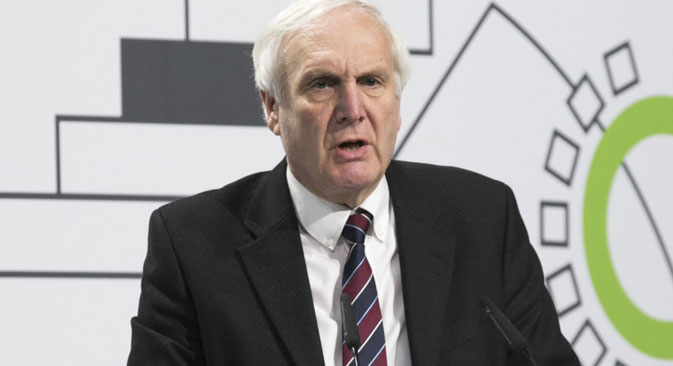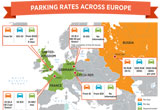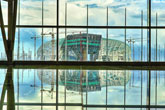Deputy Mayor of London Lister: Moscow will become a major hub

Sir Edward Lister during Moscow Urban Forum. Source: ITAR-TASS
Sir Edward Lister co-ordinates implementation of the Mayor’s priorities, strategy and policy work. He is recognised as an expert in strategic planning and has oversight of the London Plan and Community Infrastructure Levy. RBTH met him while he was taking part in the Moscow Urban Forum.
Russia Beyond the Headlines: This is your first time in Moscow. What’s your impression of the city?
Edward Lister: First impression is that I want to come back to Moscow and have more time to see its sights.
I think it’s a great city but my schedule today is too strict. I was very impressed by the airport. As I heard, a few years ago you had a lot of problems getting to Moscow. But as far as I see, the air capacity issue has been solved. I can’t say that about London. We’ve still got this problem and it’s now very important to sort it out.
RBTH: What will happen in the future with such megalopolises as Moscow?
E.L.: The reality is that is the one of the world’s great cities already. There’s no doubt that it will grow further and become a major hub. That means it will compete with other huge hubs in North America, China, Western Europe. And that’s a big challenge and a big economic driver. If you are compatible here, your economy will be rich.
RBTH: What are the differences between modern London and Moscow?
E.L.: I think it’s a rhythm, the speed with which your city is modernizing its infrastructure. It’s great what you’re doing with the metro stations, thinking of the growing suburbs’ needs, how you carefully modify the centre. The development of parking charges is one of the city’s tasks now. In London it’s already done, but it was a long process. For us, you move quite quickly and that’s interesting.
RBTH: Have you heard about the addition of a huge new region to Moscow last year? Now we call it Big Moscow
E.L.: Well, we can’t do that in London. We have a green belt around us. So, what are we doing? We are focusing on density.
With density comes transport. And we also think about sustainability of different areas. We’re trying to do everything to avoid what happens when people commute into the centre. It’s a serious issue for Moscow as I see it – many people commute to the centre because of low levels of employment, retail, and entertainment in the suburbs.
RBTH: A couple of years ago, the urban population of the planet became a majority. What are the pluses and minuses of this fact?
E.L.: The point is that it’s accelerating very fast. The 21st century will be the century of huge cities. And cities are driving the economy of nations. Whether it’s London, Moscow or New York, cities are generating the employment, the wealth and innovation. There are special zones for innovation and science in many megalopolises. In London we have Tech City, in Moscow you have Skolkovo. All this is possible because of urban prosperity. And that’s, surely, a plus. The minus is also evident. It’s the ecological problem, air pollution.
RBTH: Might we say that the city of the future is a city constructed of cities? A huge conglomerate of hubs, trade centres and special parks?
E.L.: Exactly, the cities within cities. But it’s not the future, it’s our present. Take a look at Tokyo. That’s an example we have to follow. What this city about? It consists of districts with a high level of shopping malls, entertainment places and so on. It’s comfortable to live there without going to the centre every day. But that’s not all for sure. Tokyo is also about communications, transport, IT.
RBTH: And
what about modernization of a city by attracting global events? I’m talking
about Sochi now. Will it give new life to this territory?
E.L.: I’ve never been to Sochi but I saw the old Sochi in pictures. It looks quite charming. As for the Games it can be a trigger for regeneration, but it depends on many factors. The London Olympics helped London enormously. It was the most visited city in the world last year. That’s one of the Games’ aftermaths. Stratford, which was an undeveloped zone before the Olympics, is now a brilliant place to visit. So, Sochi can get enormous economic advantages because of the Games. The trick is to understand what to do next, how to catch the energy of this huge event and convert it into a long-term story for tourists.
RBTH: Can discussion platforms like the Moscow Urban forum help us to find the right way to create the cities of future?
E.L.: No doubt. It’s very useful for high class professionals and everyone concerned to share ideas and present innovative solutions. I’m here for the first time but will be very glad to come back next year.
All rights reserved by Rossiyskaya Gazeta.
Subscribe
to our newsletter!
Get the week's best stories straight to your inbox


